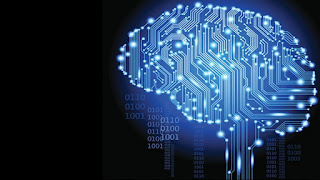The Role of Artificial Intelligence in Predictive Analytics
Predictive analytics is the process of using data, statistical algorithms, and machine learning techniques to identify the likelihood of future outcomes based on historical data. Artificial Intelligence (AI) is playing an increasingly important role in predictive analytics as it allows for the analysis of vast amounts of data and the identification of patterns and trends that would be difficult or impossible for humans to detect. In this essay, I will discuss the role of AI in predictive analytics and the benefits it offers.
One of the most important applications of AI in predictive analytics is in the field of finance. Financial institutions such as banks and insurance companies use predictive analytics to identify patterns in financial data that may indicate credit risk or fraudulent activity. AI-powered systems can analyze large amounts of data and identify patterns that would be difficult or impossible for humans to detect. For example, an AI system can be trained to identify patterns in credit card transactions that may indicate fraudulent activity or patterns in stock prices that may indicate market trends.
Another important application of AI in predictive analytics is in the field of healthcare. Healthcare organizations use predictive analytics to identify patterns in patient data that may indicate health risks or the likelihood of hospital readmission. AI-powered systems can analyze electronic health records, lab results, and claims data to identify patterns that would be difficult or impossible for humans to detect. For example, an AI system can be trained to identify patterns in patient data that may indicate the likelihood of a patient developing a certain disease or the likelihood of a patient being readmitted to the hospital.
AI is also being used in predictive analytics in the field of marketing. Businesses use predictive analytics to identify patterns in customer data that may indicate purchasing behavior or likelihood of churn. AI-powered systems can analyze data such as browsing and purchase history, social media activity, and demographics to identify patterns that would be difficult or impossible for humans to detect. For example, an AI system can be trained to identify patterns in customer data that may indicate the likelihood of a customer purchasing a certain product or the likelihood of a customer canceling their subscription.
AI is also being used in predictive analytics in the field of logistics and transportation. Companies use predictive analytics to identify patterns in data that may indicate the likelihood of delays or supply chain disruptions. AI-powered systems can analyze data such as weather patterns, traffic, and shipping routes to identify patterns that would be difficult or impossible for humans to detect. For example, an AI system can be trained to identify patterns in weather data that may indicate the likelihood of a flight delay or patterns in shipping routes that may indicate the likelihood of a supply chain disruption.
The benefits of using AI in predictive analytics are numerous. AI can analyze vast amounts of data and identify patterns that would be difficult or impossible for humans to detect. Additionally, AI can be trained to adapt to new patterns and trends over time, making it more effective as new data becomes available. Furthermore, AI can process data in real-time, which allows businesses to make decisions and take action based on the most current information.
In conclusion, AI is playing an increasingly important role in predictive analytics. Its ability to analyze vast amounts of data and identify patterns and trends that would be difficult or impossible for humans to detect makes it a powerful tool for businesses and organizations. Additionally, AI can be trained to adapt to new patterns and trends over time and can process data in real-time. As the use of AI in predictive analytics continues to grow, it will likely become an essential tool for businesses and organizations in their decision making processes and future planning.



Comments
Post a Comment